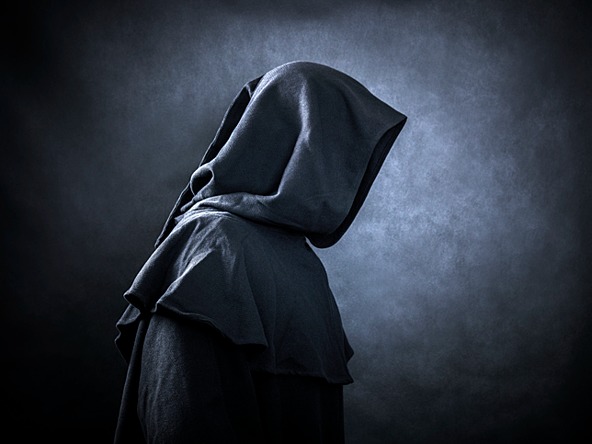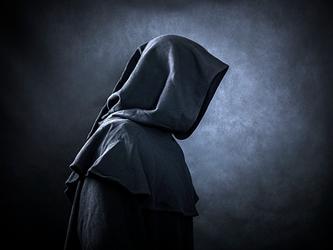What can The Celebrity Traitors show us about behavioural science?

Full disclosure: prior to the The Celebrity Traitors kicking off, I correctly ‘guessed’ who two of the three traitors would be. Jury’s out on whether that was luck, genius, or if I’m some kind of witch – but it’s got me feeling bullish.
So, very tenuously in the name of foresight, here’s a behavioural science take on whether The Celebrity Traitors champion is already hiding in plain sight.
Here are three of the key forces that differentiate this celebrity series from the regular version:
- Social identity and the fundamental attribution error – and why celebrity amplifies the risk of suspicions around characters versus behaviours
- Authority, status and hierarchies – how is influence going to play out among the influential
- Brands, celebrity and heuristics – how the nature of celebrity identity as ‘brands’ is going to play on their behaviours in the castle.
Identity and the fundamental attribution error
In the regular version of the show, character traits surface and shape the game over time and people get tribal, forming social in-groups who play against out-groups, with bonds reinforced through reciprocity – “I won’t vote for you; don’t vote for me”.
In the celebrity version, professional identity will be front and centre in the contestants’ minds and because of the fundamental attribution error – where a person’s character, personality, or even profession is used to predict and explain their behaviour while contextual factors are downplayed – I think the ‘types’ of celebrities are going to have a big impact on behaviours and loyalties within the castle.
Let’s break this down. At a high level you have:
- The performers – actors, musicians and comedians. They are masters of characterisation, trained to pretend. They’re going to be suspected by nature and find it hard to defend themselves at the round table. Although I reckon the comedians have a chance – using humour to deflect; likeable and clever and they’ll have each others’ backs, which is a potent combination. (A note – sooner or later they’ll realise that the presenters are basically actors – I can’t see Jonathan Ross or Alan Carr going the distance…)
- The sporting folk – Clare Balding included – will be seen as ruthlessly competitive, although the team nature of rugby means Joe Marler is in with a shot.
- The academics will always have heat, as they are perceived to be so clever that they can play the perfect game. It could be a challenge to survive the round table.
But in what camp would we put Sir Stephen Fry? I guess he spans performer, presenter and academic; multi-tribal you could say. A Jack of all trades and master of… all trades?
Authority, status and hierarchies
We can all acknowledge that there’s an established hierarchy from the get-go. You’ve got a cast of a-list national treasures through to young up-and-comers, and that creates an authority ‘league table’. Authority bias is the tendency to think or behave in accordance with what a trusted expert does or tells us to do. It’s hugely linked to trust, so if you’re seen as an expert, you’re going to wield some influence.
There are a number of authority and status structures inbuilt into the dynamics of The Celebrity Traitors that are absent from the regular version.
- The national treasures – or ‘big dogs’
- Traditional versus social media stars
- Older wise owls versus wide-eyed owlets
- And let’s be honest, scholars versus performers (it’s an interplay of layers after all).
There are celebrities perceived as authorities in the house – either through expertise or status or purely life experience. And one authority is indisputably senior to all others… a certain Stephen Fry.
Brands, celebrity and heuristics
Let’s look at this from a different angle. These celebrities aren’t just people, they’re (I hate to say it) brands. Some of them are challengers focused on building their brand, and others are more ‘legacy’, looking to expand and protect it.
Their behaviours in the castle will build new brand associations regarding who they are and what they’re about, and the huge viewership and surrounding publicity will mean these associations will come readily to mind going forwards.
The legacy celebrity brands have richer associations and may be able to get away with more devious behaviour – a sprinkle of manipulation or cunning in the national treasure chest only adds to the richness. The challenger brands need to tread more carefully; they don’t want ‘scheming’, ‘manipulative’, or ‘cruel’ to be the primary associations or heuristics that come to mind when people think of their brand.
And for that reason, up-and-comers are not going to murder or banish Stephen Fry, and the legacy brands wouldn’t be so cruel, luvvie. But will he be recruited?
Can behavioural science reasoning correctly predict who is going to win The Celebrity Traitors ? Well, probably not – black swans and poisoned lilies make predicting a fool’s errand. But I’d bet my last dollar that it’ll take a black swan or turning him to the dark side to see off Stephen Fry.
If that happens, then I’m calling out Joe Marler – or one of the comedians – to be the faithfuls’ only hopes.
Eimear MacGarty is director at Lovebrands

We hope you enjoyed this article.
Research Live is published by MRS.
The Market Research Society (MRS) exists to promote and protect the research sector, showcasing how research delivers impact for businesses and government.
Members of MRS enjoy many benefits including tailoured policy guidance, discounts on training and conferences, and access to member-only content.
For example, there's an archive of winning case studies from over a decade of MRS Awards.
Find out more about the benefits of joining MRS here.












0 Comments